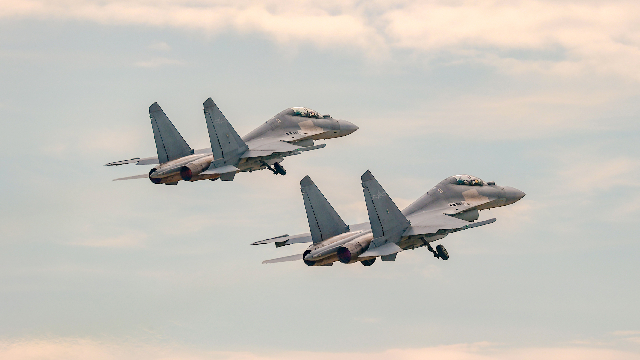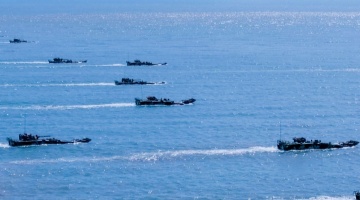By Yan Yu
A group of 99 Japanese Diet members visited the Yasukuni Shrine on a high profile at the 80th anniversary of Japan’s attack on Pearl Harbor. Japanese Prime Minister Fumio Kishida suddenly announced his decision not to attend the opening ceremony of the 2022 Beijing Olympic Winter Games less than 50 days before the opening day. Former Japanese Prime Minister Shinzo Abe and other right-wingers repeatedly hyped the Taiwan question and publicly declared their support for “Taiwan independence”… Japan’s frequent provocations lately have not only cast a shadow over the China-Japan relations, but also added many uncertainties to the regional situation, causing great concerns in the international community.
Meng Xiaoxu, a researcher at the Institute of Japanese Studies, Chinese Academy of Social Sciences, said Japan made the provocations against China for four purposes.
First, it is making overtures to the US to consolidate their alliance and also leveraging the major-country competition between the US and China to contain China’s development in hopes of gaining strategic advantages on the territorial disputes. Second, it is trying to shape a multilateral containment against China and further pressure it by intensifying security cooperation with other countries than the US, such as Australia and the UK that just signed the Reciprocal Access Agreement with Japan. Third, it is hyping the so-called “China threat” to create tension inside Japan in order to gather public support for pushing for the constitutional revision. Fourth, it is smearing China on the so-called democracy and human rights issues to enhance Japan’s discourse power and influence in the region, and seek to become a “normal country” by transforming its post-WWII image and state.
Fumio Kishida in an interview with Hanada this December said that he intended to amend the Japanese Constitution during his term as LDP president, and claimed that he would not give in an inch in face of China.
“Former Japanese Prime Minister Shinzo Abe also dreamed of amending the Japanese constitution by hyping the so-called ‘China threat’. That’s just Tokyo’s old trick to create the public opinions for seeking a ‘normal country’ state for itself,” said Yang Mian, a professor at the Institute of International Relations, Communication University of China.
What’s the Japanese government is doing now is pulling chestnut out of the fire, imagining that it can fish in the troubled waters of international situation to gain strategic interests and raise its international standing. “Getting increasingly anxious about China’s fast development, Japan attempts to stop its rise, so much so that it willingly stoops to acting as America’s hatchet man and playing along in its strategy to contain China, in hopes of maintaining its position in Asia. In the meantime, Japan has territorial disputes with China over the Diaoyu Islands and refuses to admit to its historical war of crime. Therefore, taking the China-US tension as an opportunity, it wants to revenge and suppress China by playing the Taiwan card,” said Yang Mian.
Meng Xiaoxu also reminded that the Japanese government displayed other tendencies on China-related issues that are worth vigilance. It is constantly making wanton remarks about the Taiwan question and interfering in China’s internal affairs; it is closely following Washington in pushing the so-called “human rights diplomacy”; it is hyping up the Diaoyu Islands issue on multilateral occasions to counter China. And, in the security domain, it is stepping up its attacking capability toward the enemy bases in the attempt to lift the ban on its assault capabilities under the disguise of self-defense.
Japanese media reported that Fumio Kishida, when inspecting the Japan Ground Self-Defense Force in late November, emphasized that Japan must intensify necessary defensive forces considering the rapidly changing security environment around the country. He also said while Japan revised the long-term guides on its diplomatic and security policy, such as the National Security Strategy, National Defense Program Guidelines, and Medium Term Defense Program, there will be discussions about acquiring the ability of attacking enemy bases in order to stop ballistic missiles within the territory of enemy countries.
“In the past, Japan has never reflected on its aggressive history; today, it is continuously hyping up external threats and attaching more importance to the use of military forces. Such a tendency will increase regional security risks and raise concerns among Japan’s neighbors and the international community,” said Meng Xiaoxu.
Editor's note: This article is originally published on haiwainet.cn, and is translated from Chinese into English and edited by the China Military Online. The information, ideas or opinions appearing in this article do not necessarily reflect the views of eng.chinamil.com.cn.









